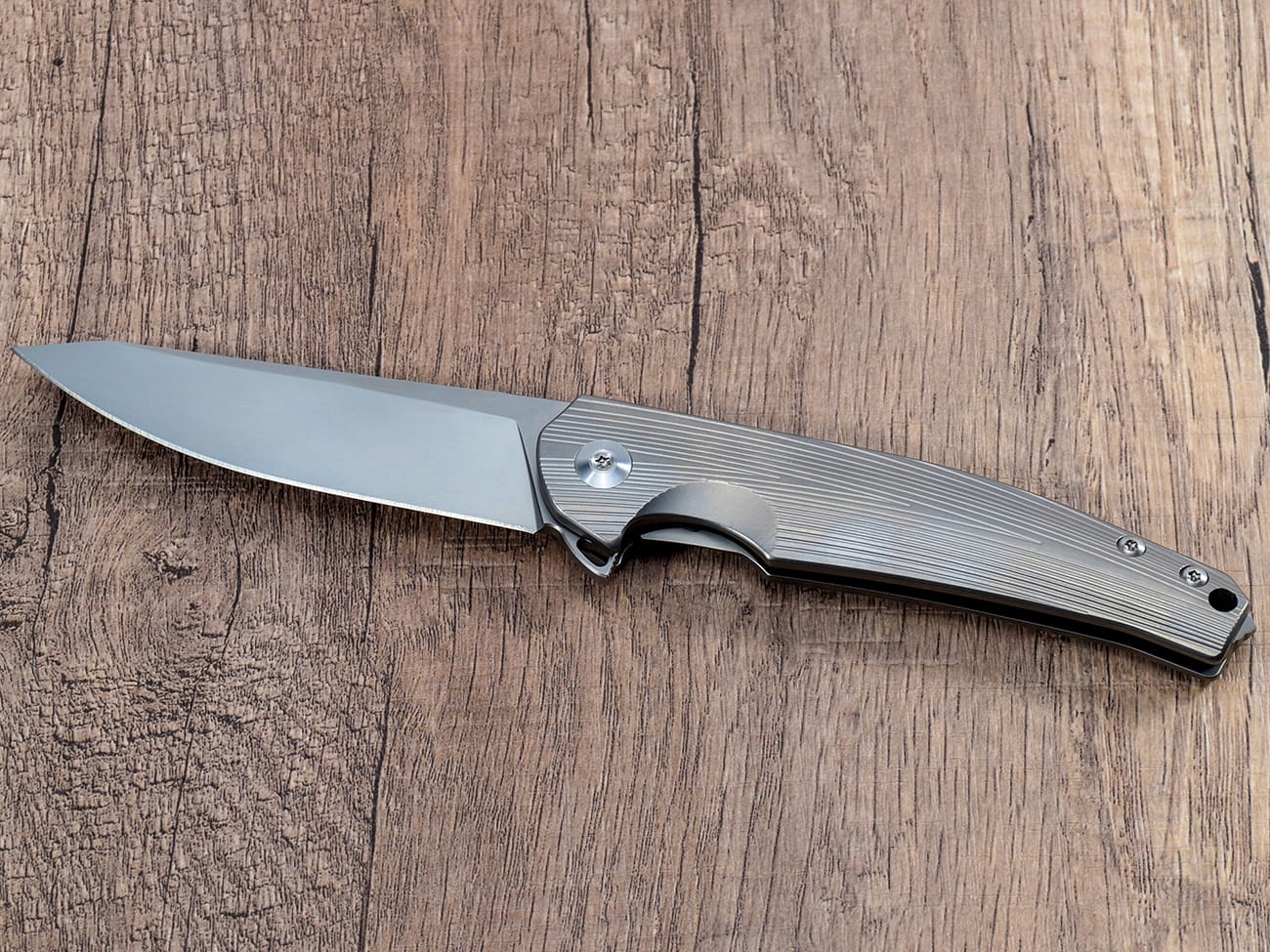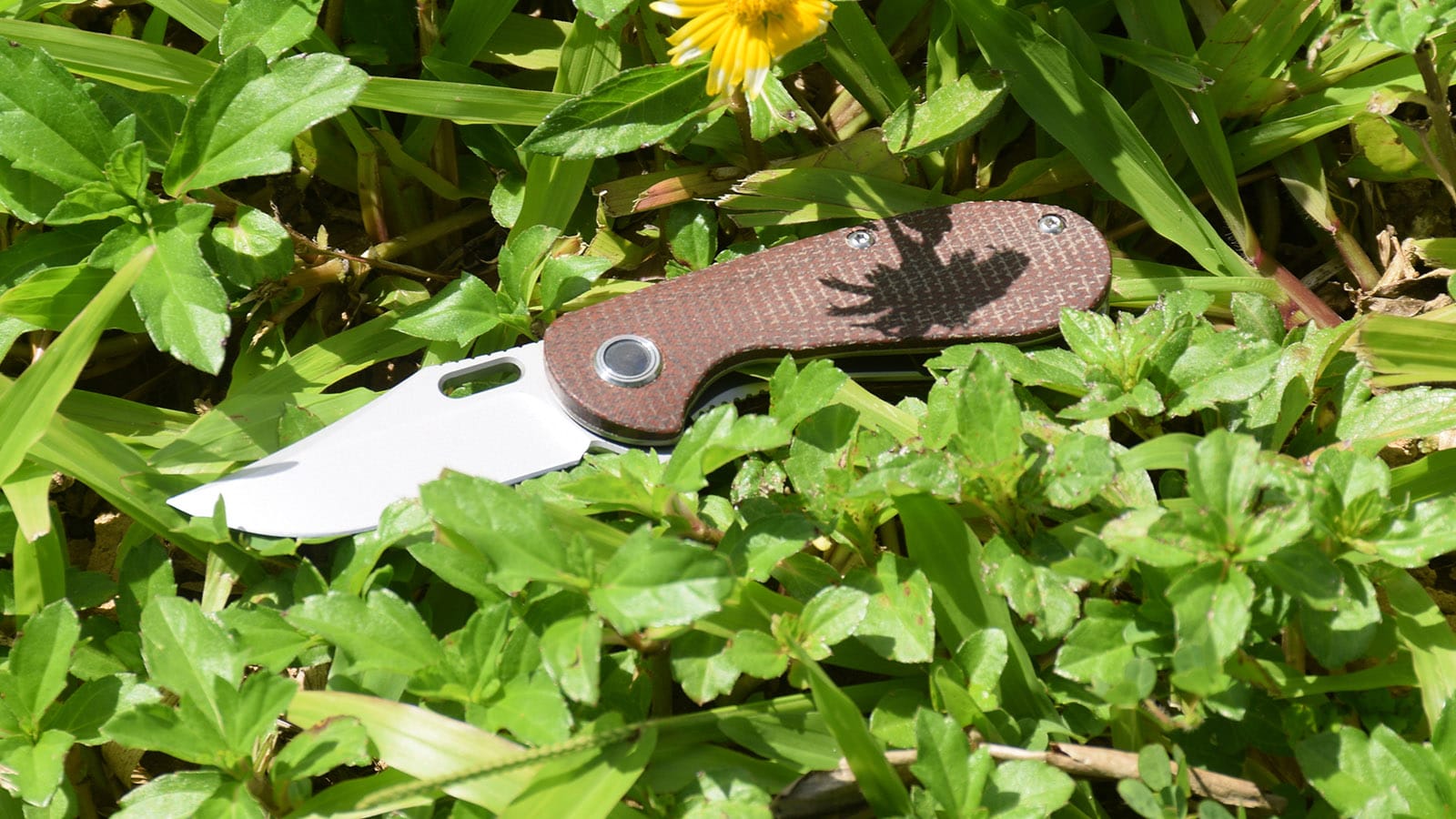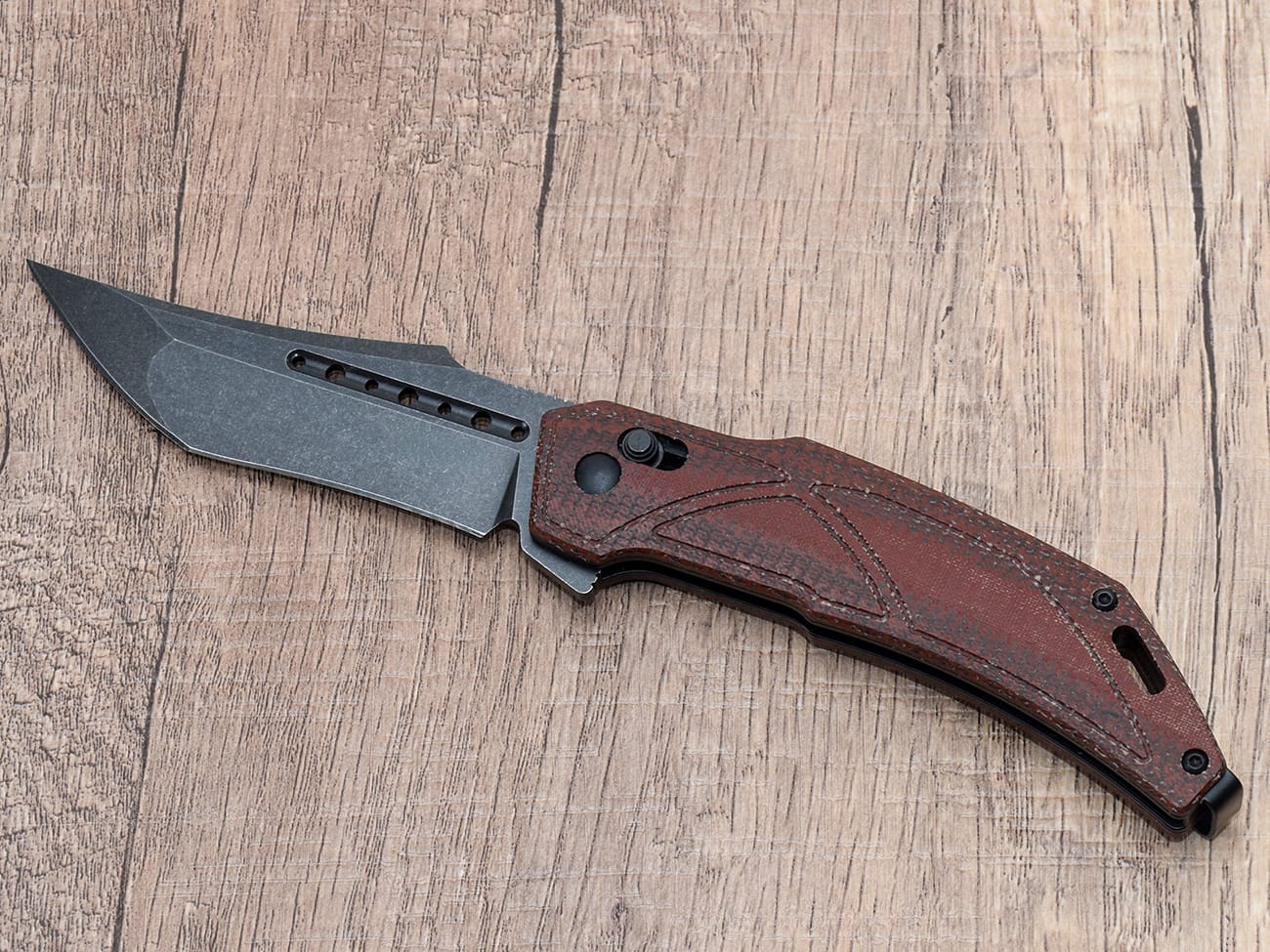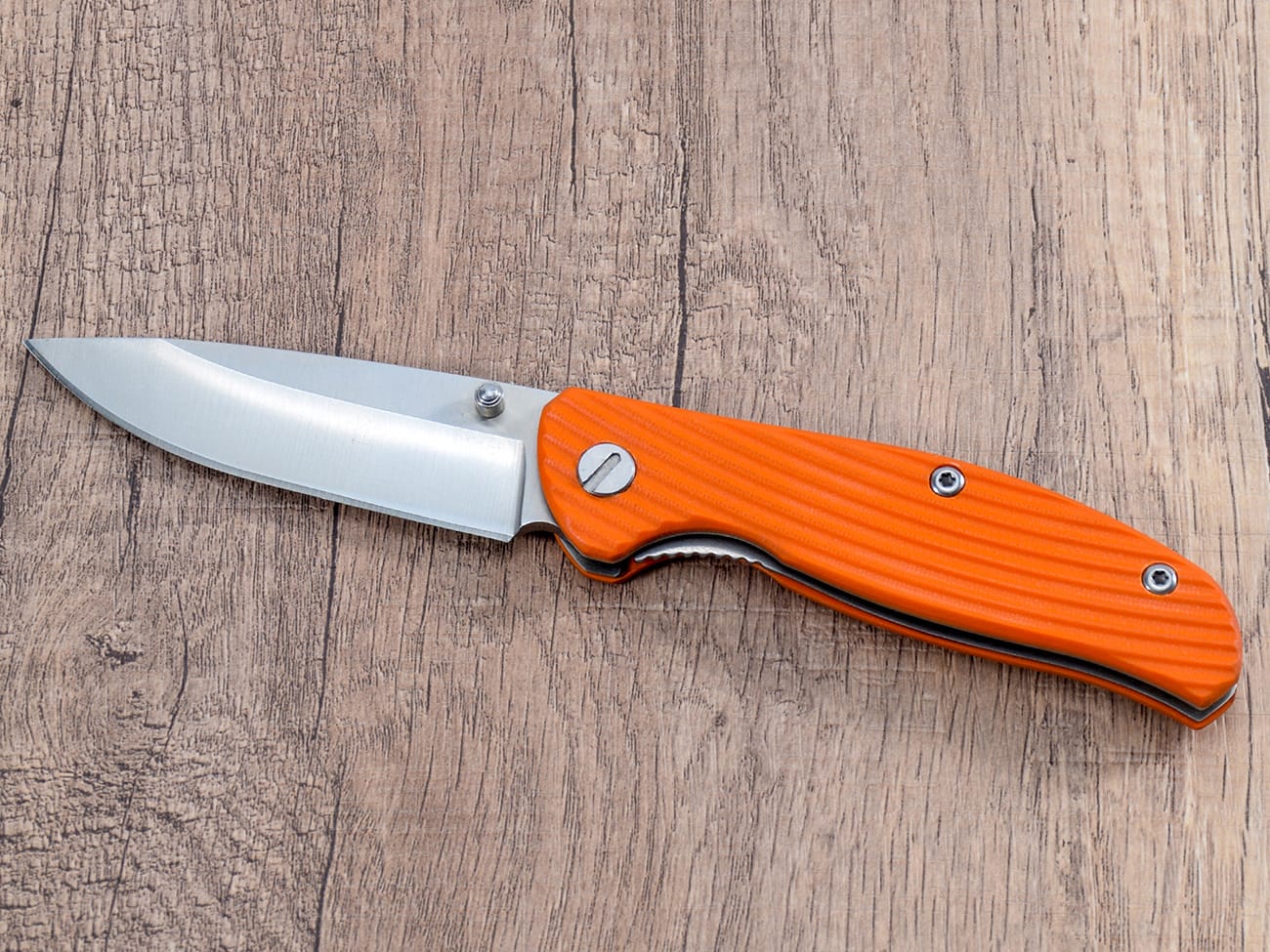D2 steel has become a popular choice for knife blades, but is it really as good as some claim? In this comprehensive guide, we’ll dive deep into the world of D2 steel, exploring its properties, advantages, and potential drawbacks. Whether you’re a knife enthusiast or just looking for your next everyday carry blade, this article will help you understand if D2 steel is the right choice for your needs.
What is D2 Steel?
D2 steel is a high-carbon, high-chromium tool steel known for its excellent wear resistance and edge retention. Originally developed for industrial applications like dies and cutting tools, D2 has found its way into the knife world due to its impressive properties.
The Composition of D2 Steel
Understanding the chemical makeup of D2 steel is crucial to appreciating its performance. Here’s a breakdown of its key elements:
- Carbon: 1.5-1.8%
- Chromium: 11-13%
- Molybdenum: 0.7-1.2%
- Vanadium: 1%
- Silicon: 0.3-0.5%
This unique composition gives D2 steel its characteristic hardness and wear resistance.
Is D2 Steel Good for Knives?
The short answer is yes, D2 steel can be excellent for knives. However, like any material, it has its strengths and weaknesses. Let’s explore the pros and cons:
Advantages of D2 Steel for Knives
- Exceptional Edge Retention: D2’s high carbon content and carbide-forming elements contribute to its ability to hold an edge for extended periods.
- Excellent Wear Resistance: The hard carbides formed during heat treatment make D2 highly resistant to abrasive wear.
- Good Toughness: While not as tough as some stainless steels, D2 offers a good balance of hardness and toughness for most knife applications.
- Affordable Performance: D2 often provides performance comparable to more expensive steels at a lower cost.
Disadvantages of D2 Steel for Knives
- Not Stainless: With a chromium content just below the 13% threshold for stainless classification, D2 can rust if not properly maintained.
- Challenging to Sharpen: The same properties that give D2 its excellent edge retention can make it more difficult to resharpen compared to softer steels.
- Potential for Chipping: When hardened to very high levels, D2 can be prone to chipping if used improperly.

A sleek D2 steel folding knife with titanium handle, showcasing the material’s popularity in high-end pocket knives
How Does D2 Steel Compare to Other Knife Steels?
To truly understand D2’s place in the knife world, it’s helpful to compare it to other popular blade steels:
D2 vs. 1095 High Carbon Steel
1095 is a classic high-carbon steel known for its ease of sharpening and toughness. D2 offers superior edge retention and wear resistance but is less corrosion-resistant and more challenging to sharpen.
D2 vs. S30V
S30V is a premium stainless steel often considered a step up from D2. It offers better corrosion resistance and toughness but comes at a higher price point.
D2 vs. 440C
440C is a popular stainless steel with good all-around performance. D2 generally offers better edge retention and wear resistance, while 440C provides superior corrosion resistance.
Heat Treatment: The Key to D2 Steel’s Performance
The heat treatment process is crucial for bringing out the best properties of D2 steel. Proper heat treatment can result in a hardness range of 58-62 HRC, striking a balance between edge retention and toughness.
Is D2 Steel Good for EDC Knives?
D2 steel can be an excellent choice for everyday carry (EDC) knives, especially for users who prioritize edge retention and don’t mind some extra maintenance. Its wear resistance makes it well-suited for daily cutting tasks, from opening packages to food prep.
D2 Steel in Fixed Blade Knives
While D2 is popular in folding knives, it also shines in fixed blade designs. Its wear resistance and toughness make it suitable for outdoor and survival knives, though extra care must be taken to prevent rust in harsh environments.
Maintaining Your D2 Steel Knife
To keep your D2 blade in top condition:
- Clean and dry the blade after use, especially after cutting acidic materials.
- Apply a thin coat of oil to prevent rust.
- Use a fine-grit sharpening stone when it’s time to resharpen the edge.
Is D2 Steel Worth the Hype?
D2 steel has earned its reputation as a high-performance blade material. Its combination of edge retention, wear resistance, and affordability make it a popular choice among knife enthusiasts and manufacturers alike. However, it’s essential to consider your specific needs and usage patterns when deciding if D2 is right for you.
Conclusion: Is D2 Steel Good for Your Next Knife?
D2 steel offers excellent performance for many knife applications, particularly where edge retention and wear resistance are priorities. While it requires more maintenance than stainless steels and can be challenging to sharpen, many users find these trade-offs worthwhile for the performance benefits.Key points to remember about D2 steel:
- Exceptional edge retention and wear resistance
- Not stainless – requires proper maintenance to prevent rust
- Can be challenging to sharpen but holds an edge for extended periods
- Offers good value for its performance characteristics
- Suitable for both folding and fixed blade knives
- Popular choice for EDC and outdoor knives
Whether D2 steel is the right choice for your next knife ultimately depends on your specific needs, usage patterns, and willingness to maintain the blade. For many knife enthusiasts, the performance benefits of D2 make it a compelling option in the ever-expanding world of knife steels.




